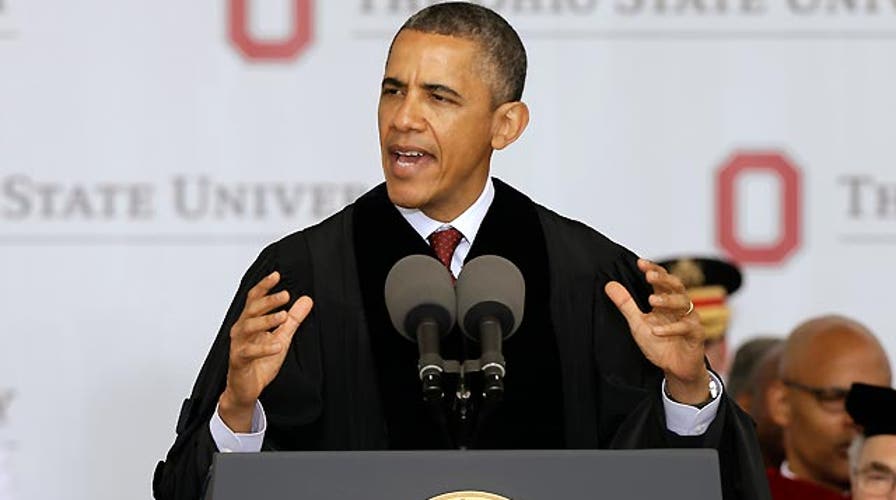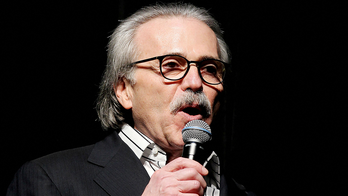A passage in President Obama's recent commencement address at Ohio State University has highlighted the stark contrast between his view of the role of government and that of his Republican opponents, and it may portend tough political clashes for the remainder of his term.
"Unfortunately, you've grown up hearing voices that incessantly warn of government as nothing more than some separate, sinister entity that's at the root of all our problems," Obama told graduates. "Some of these same voices also doing their best to gum up the works. They'll warn that tyranny is always lurking just around the corner. You should reject these voices."
Critics point out the fear of government tyranny was also a prime motivator of the founding fathers as they crafted the Constitution.
"I am not a friend to a very energetic government. It is always oppressive," Thomas Jefferson said.
"They who can give up essential liberty to obtain a little temporary safety deserve neither liberty nor safety," Ben Franklin said.
But Obama follows "a different tradition," Dan Mitchell of the Cato Institute said. "He comes from the tradition of Woodrow Wilson and the so-called progressive movement that sees government as a wonderful, good thing that is supposed to take care of us."
Jefferson might be dismayed at just how "energetic" our government has become. Measured per household, the federal government is spending more than at any time in its history. Data compiled by the Heritage Foundation shows that since 1965 spending has grown by 152 percent, from $11,900 to $30,015 per household in 2012. Spending is expected to rise to $34,602 per household by 2022.
Many fear the U.S., burdened by high taxes, deficit spending and unprecedented debt, is edging toward a European style economy. "If we become more like Europe, and that's basically what president Obama was implying we should be like in his Ohio state address, we're going to have the exact same problems," Mitchell said, "a very stifling tax burden that discourages productive behavior while at the same time having an excessive public sector that lures people's into unproductive activity."
Lorelei Kelly of the New America Foundation disagrees. She thinks the president's Ohio State address was tailored to the talents of a tech savvy younger generation. She hopes their skills will one day transform bureaucratic inefficiencies into effective, responsive governance.
"At the end of the day, everybody wants traffic signals that work, schools for their kids to go to that are safe and an economy that's connected," she said.
"Young people have a tremendous role to play in a very positive sense, because they understand their whole world view is connected," she said. "Everybody loves to beat up on the government and sound like we can do more with less, but the truth is what we need to start thinking about is how to update, modernize and reform our government."
Even so, after Saturday's ceremony, graduates at Ohio State and hundreds of other colleges around the U.S. will step into a world marked by the harsh realities of scarce jobs, aging parents and the looming costs of entitlements -- all challenges that will test their faith in government as few generations have been tested.





